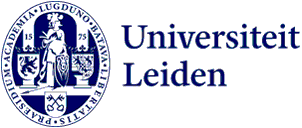
Teaming up with Portugal: as a doctor, how do you talk to a patient?
As a doctor, coming to a decision together with a patient: how do you do that in the best possible way? Researchers Geert Warnar and Roosmaryn Pilgram, who jointly teach a course within the MA in Dutch Studies, are entering into a virtual collaboration with the Universidade NOVA de Lisboa to find the answer to that question.
'For a number of years now, the idea has been for doctors to engage in shared decision making,' Pilgram explains. 'That means that they come to a decision together with the patient, for example about the decision to treat or not to treat.' In practice, however, this often proves difficult. 'For example, if a patient expresses doubt, that could be a sign that they are not sure what to do, but it could also be a request to hear even more reasons for treatment or, on the contrary, it might be a way of showing that you disagree with the doctor.'
In the research conducted so far, however, such complexities often do not emerge. 'The research on shared decision making is conducted almost entirely at medical faculties, where attention is generally only paid to whether a doctor has asked certain questions,' Pilgram explains. 'That way, you’re likely to miss all kinds of information, adds Warnar. 'For example, you don't know whether someone is sufficiently aware of the fact that, as a medical professional, you have a very different position from someone who might be having a life-threatening experience at that moment.'
New possibilities
With their new research, Warnar and Pilgram aim to introduce such nuances from a linguistic and literary perspective. To do so, they are collaborating with Portuguese researchers and their students. 'They presented similar research at a conference,' says Pilgram. 'Normally you don't consider working together at such a distance at all, but with the VIS grant you can.'
VIS stands for virtual international cooperation projects. With this grant, colleges and universities can allow their students to gain international experience without physically going abroad. 'The aim is to design an infrastructure within which we can collaborate,' says Warnar. 'As a humanities scholar, you then have the advantage that you can do a lot with a relatively small amount of money. In other branches of science, they can run a server for 15 minutes with 15,000 euros, but we can get people to collaborate for a long time.'
Immediately relevant
Warnar and Pilgram plan to invest the money in a virtual think tank, within which Portuguese and Dutch students can work together. 'They will be part of a real research project,' says Pilgram. 'Often in a subject you already know what is going to come out of it, but this is innovative research that can have immediate practical use. I think it's great fun for them to experience that.'
Warnar sees another benefit. 'Sometimes students need a little push to spread their wings. This can then have the effect of lowering the threshold for students. You don't immediately have to go to Lisbon for six months on an internship, but you do have the same opportunities for international cooperation.'
